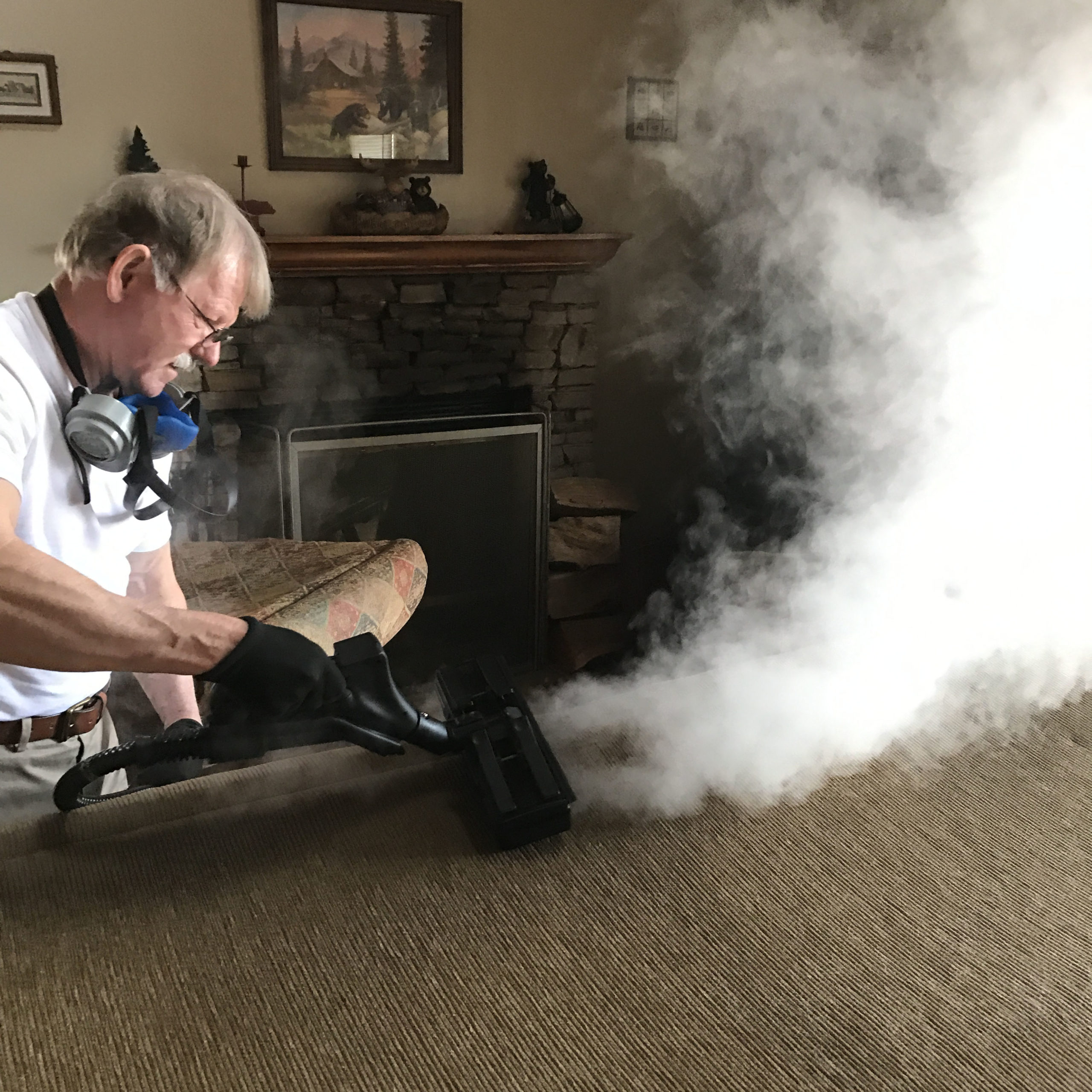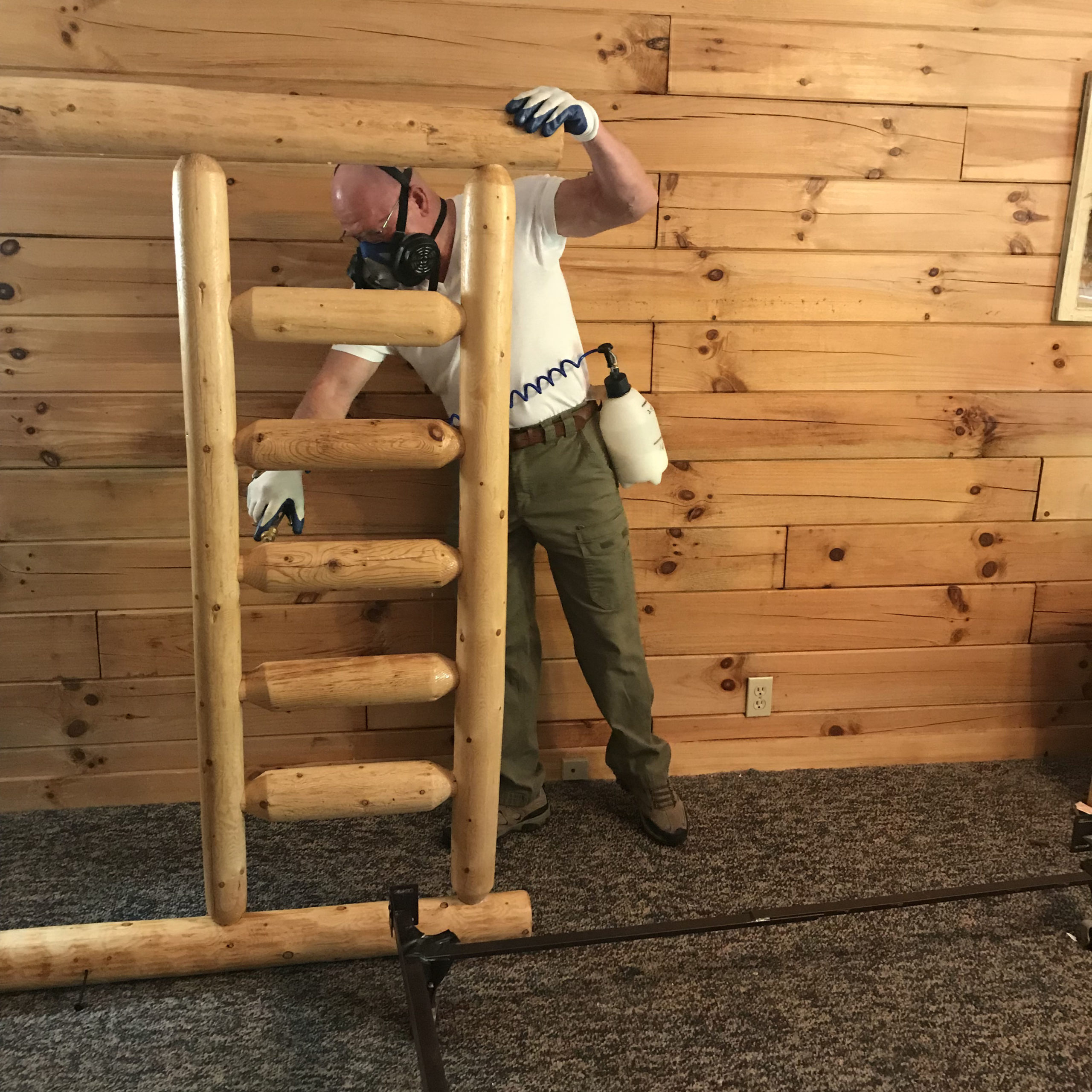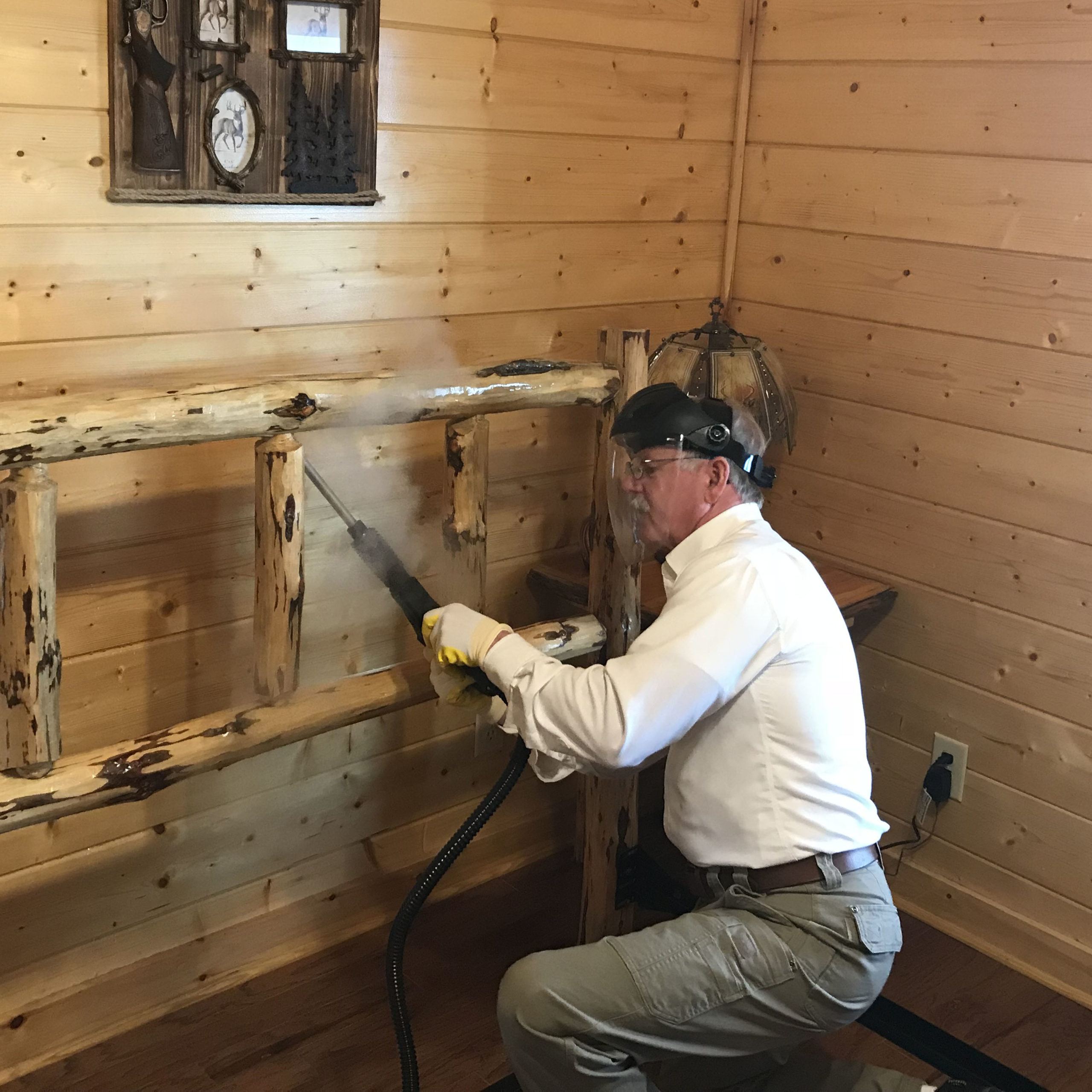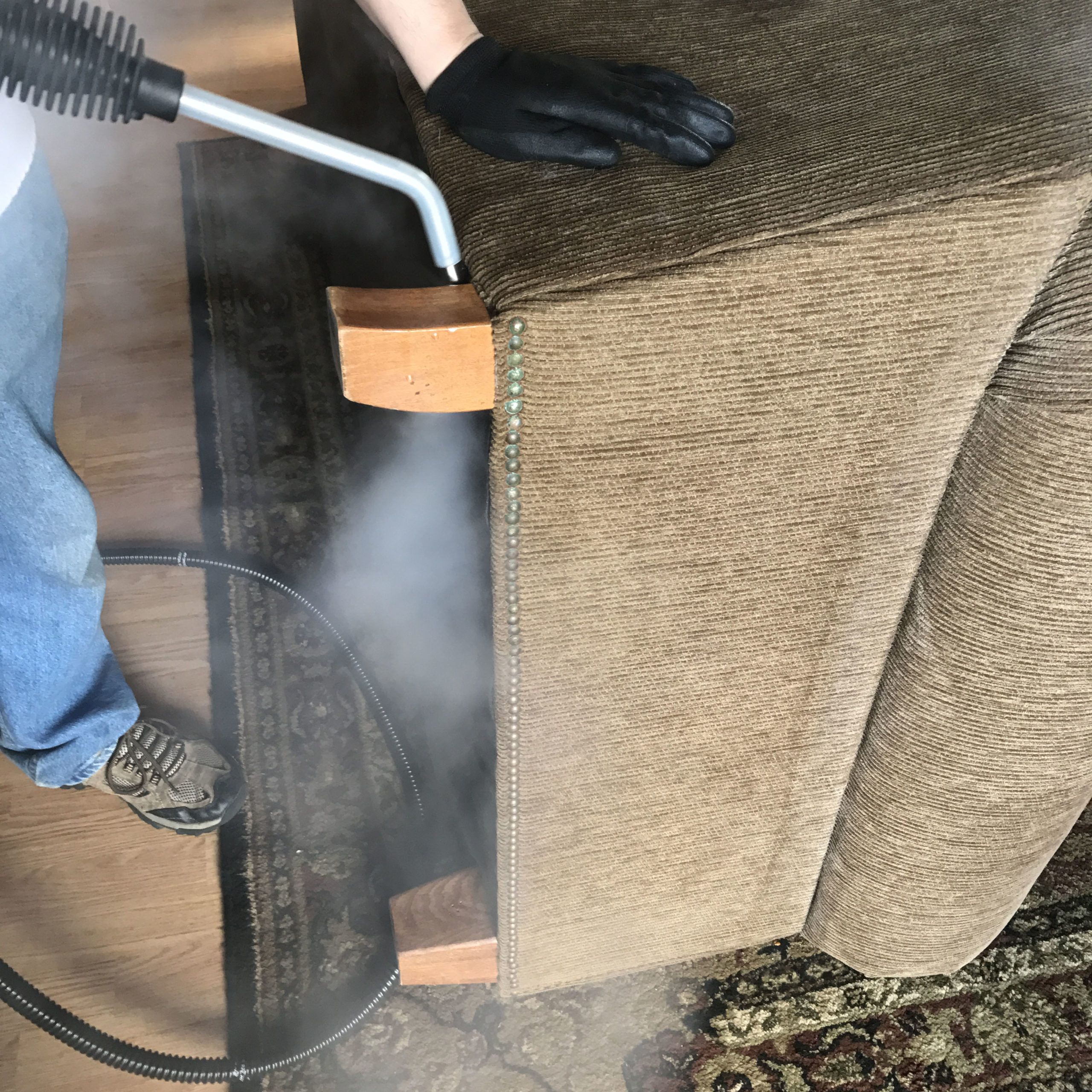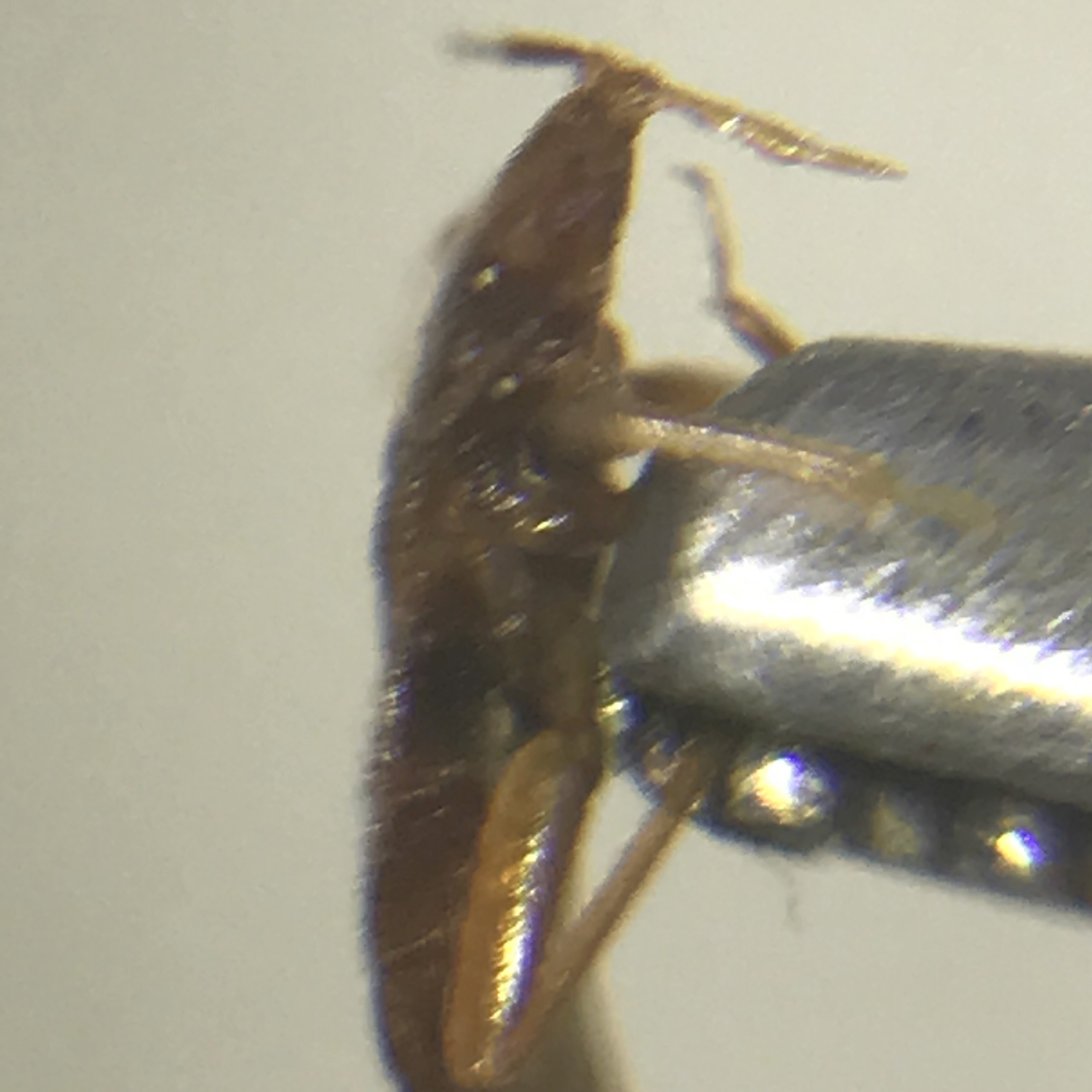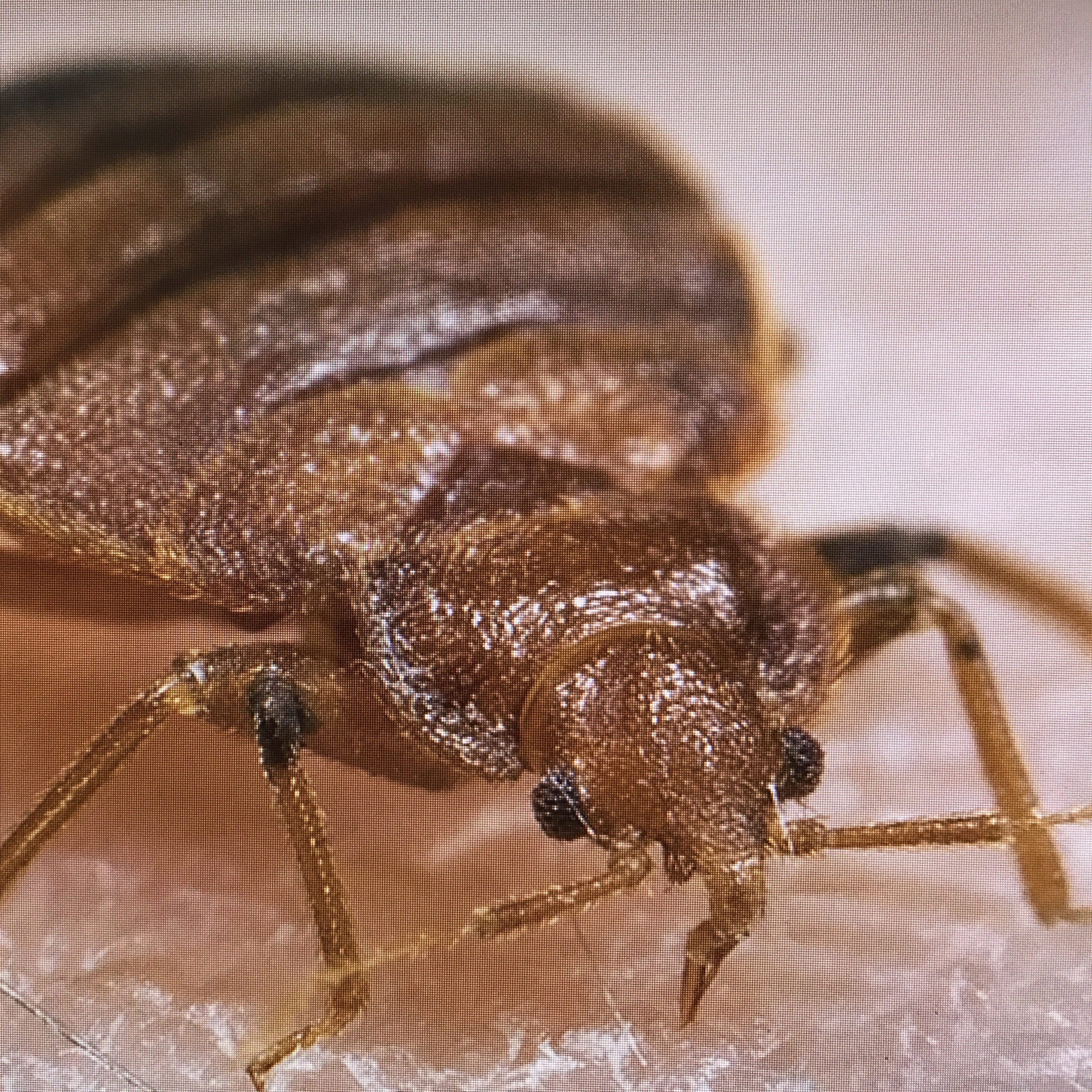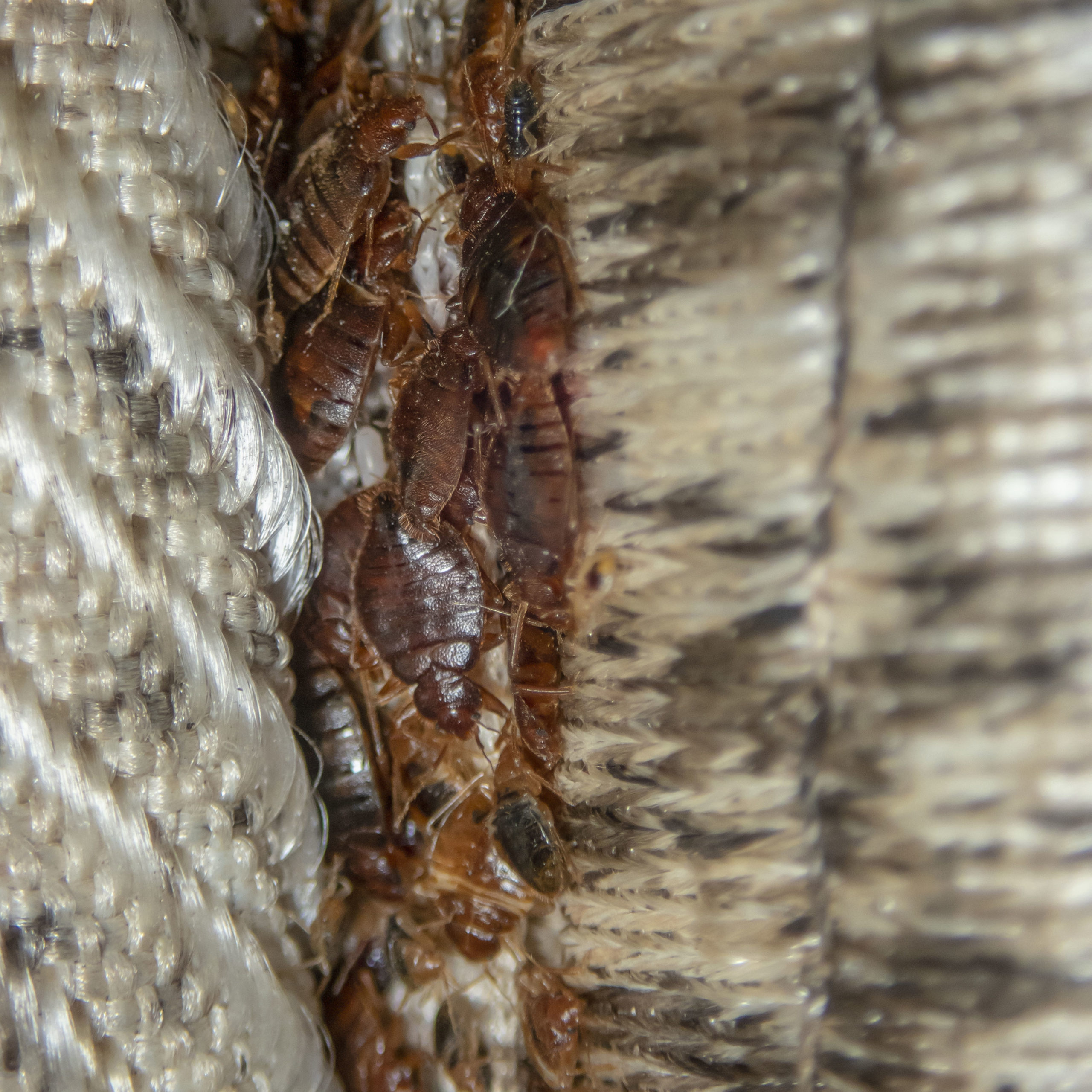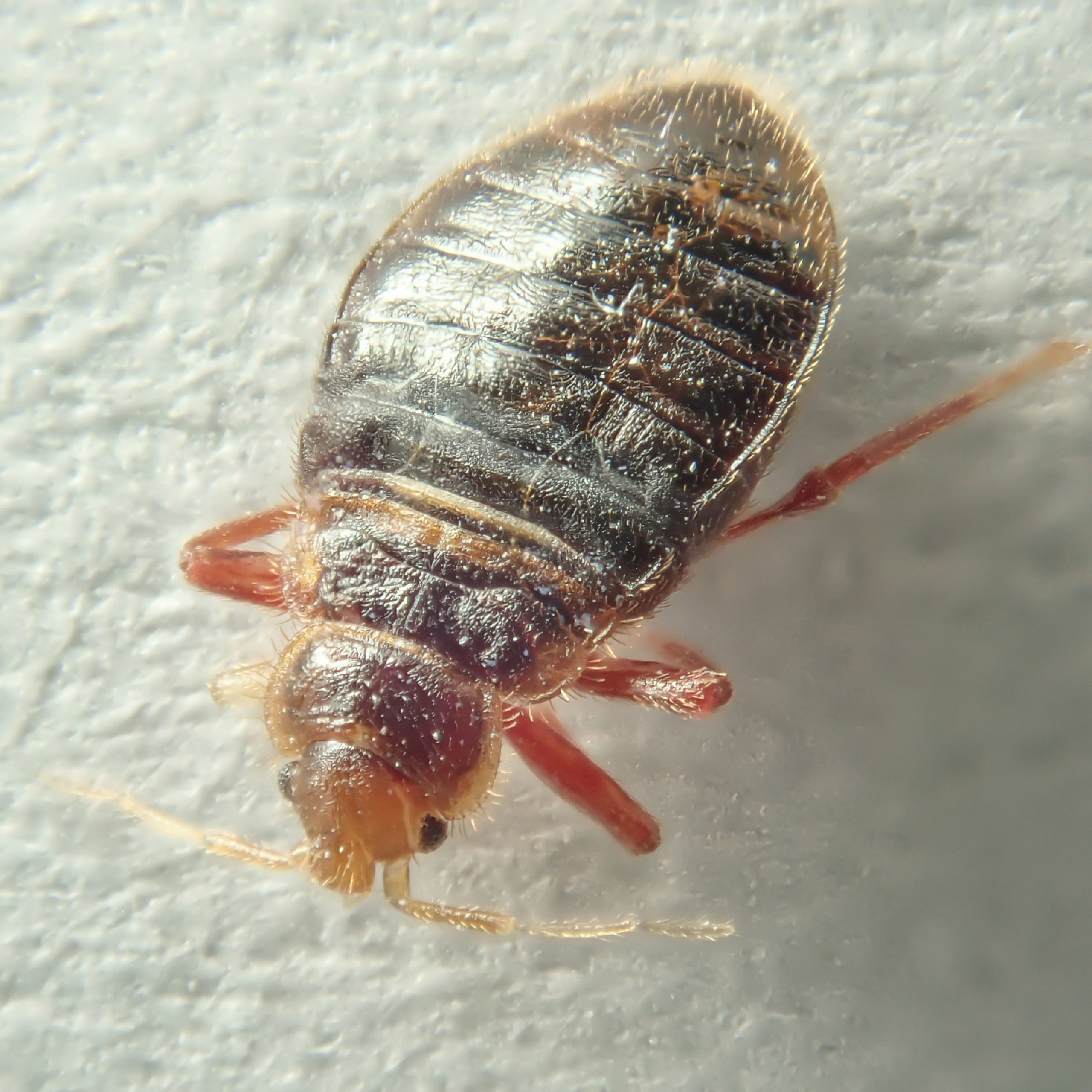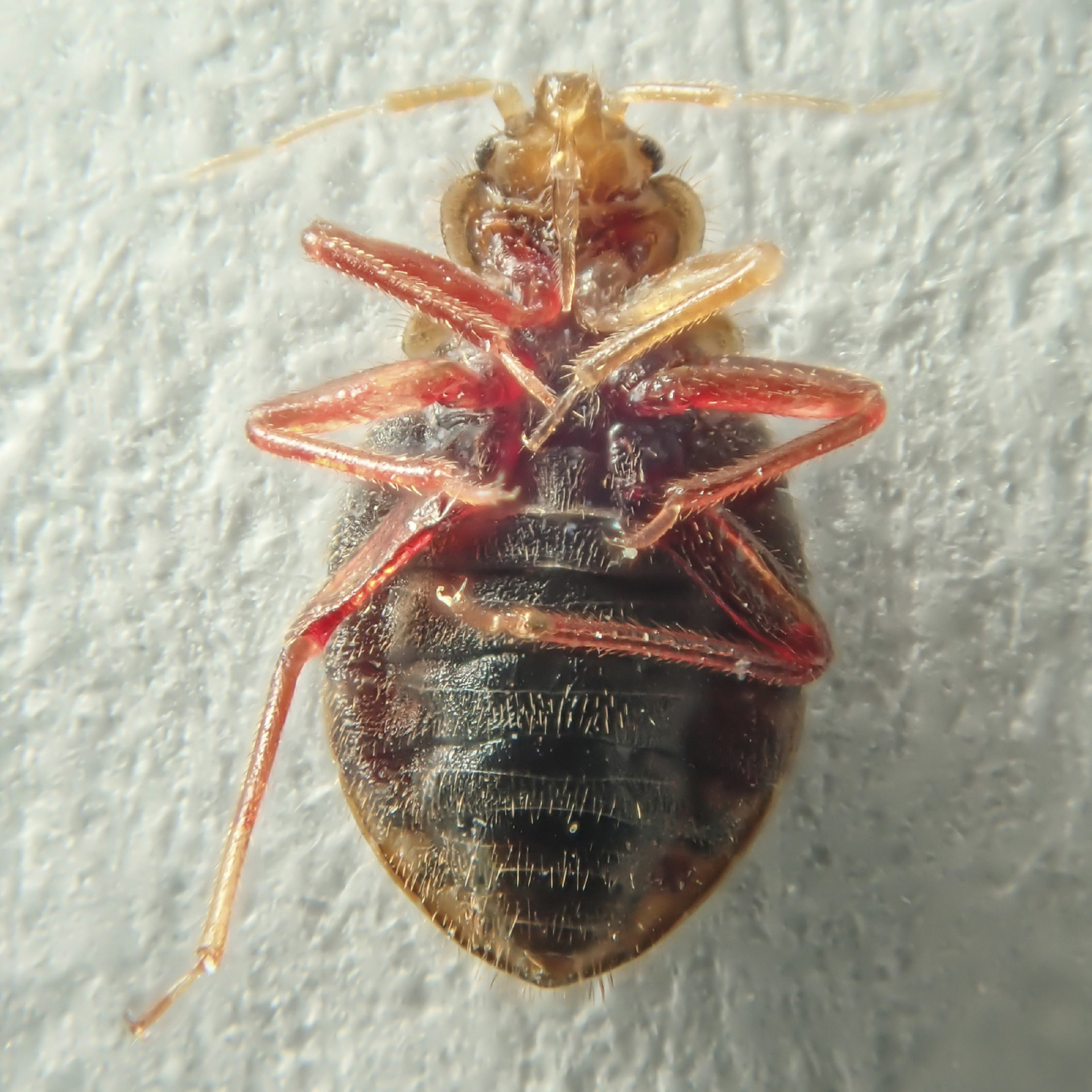The #1 Bed Bug Exterminator in Sevierville, Gatlinburg, Pigeon Forge, and the Surrounding Areas!
Bed Bugs 101: What to look for and what to do if you have bed bugs!
Bed bugs are not the sight anyone wants to see but that is why TN Exterminators are here to help show what to look for and explain what to do if you have found or come in contact with bed bugs! Of course, you might have a unique situation that you need guidance on so feel free to visit our Contact Us page if you have any questions that are not answered below.
How can I spot bed bugs?
Bed bugs can be difficult to spot because they are very small, especially if they have not had a blood meal. Things to look for besides live bed bugs include rusty or reddish stains or dark spots on bed sheets/mattresses, eggs/eggshells that are about 1mm in size, and pale yellow skins that nymphs shed as they grow larger. The best places to look for bed bugs are mattresses, box springs, sheets, pillows, bed frames (including headboards), furniture such as couches and tables, loose wall paper, and electrical recepticals. Lastly, one obvious sign of bed bug infestation is evidence of bed bug bites on your skin as seen here:
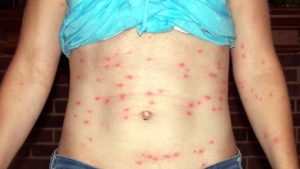
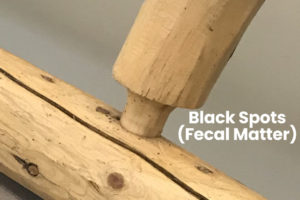
I have bed bugs!!! What do I do?! Don't Panic!
The answers are only a phone call away! Call the response line 24/7 at 865-742-2323 Gary. While you may have the urge to throw everything out and burn it, the only thing you need to do is walk away and close the door of the affected room (or rooms) and give us a call. We have equipment to exterminate the bed bugs without the need of destroying the furniture or throwing out the linens that might be infested. Do not bring any clothes, suitcases, or other materials from these affected room(s) as they too could have bed bugs on them and you could cross contaminate other areas. (Residential not overnight)
How do we treat for Bed Bugs?
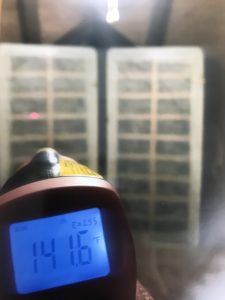
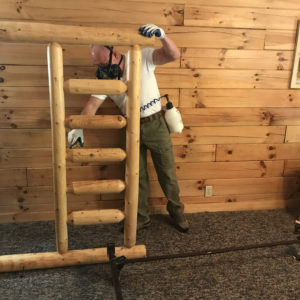
There are approximately seven different processes to exterminate bed bugs. What process or multiple processes to be used is determined by where they are located and how long they have been present. For example, if the infestation is in wooden headboards or the walls, HEAT will not kill them. If their located in the wall receptacles, you wouldn’t want to use STEAM or CHEMICAL SPRAY. That could exterminate you!
We inspect your entire cabin and/or unit and determine all locations needing treatment. We then contact you while on site with a plan and cost estimate to 100% eliminate these unwanted guests.
The majority of our treatments (92%) allow your guest to check in the same day. The other 8% is usually the next day!
We also have a follow up inspection to guarantee, not one egg survived!
Our normal hours of operation are 8am-4pm and we don’t stop for lunch!
Bed bug inspections and treatments are available 24/7 however their is a $150 call out fee for weekends, after hours, and holidays.
For more information call Gary NOW at 865-742-2323
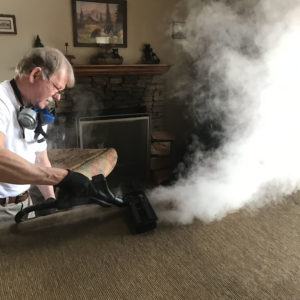
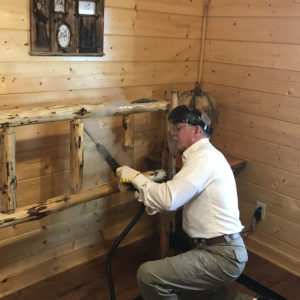
How do Bed Bugs behave and how do they live?
Feeding:
- Human blood is their main food source.
- Will readily travel 5-50 feet from established hiding places (called harborage) to feed on a host.
- Even though they are primarily active at night, if hungry they will seek hosts in full daylight.
- Feeding can take 3-12 minutes.
Life stages/mating:
- Bed bugs need at least one blood meal before the individual bug can develop to the next of the six life stages.
- They can feed more than once.
- Each stage also requires the molting of skin.
- To continue to mate and produce eggs, both males and females must feed at least once every 14 days.
- Each female may lay 4 to 7 eggs per day and 200-500 eggs per her lifetime.
- Egg-to-egg life cycle may take four to five weeks under favorable conditions.
Living conditions:
- Bed bugs can survive and remain active at temperatures as low as 46°F, but they die when their body temperatures reaches 140°F.
- To kill bed bugs with heat, the room must be even hotter to ensure sustained heat reaches the bugs no matter where they are hiding.
- Common bed bugs are found almost anywhere their host can live.
- Tropical bed bugs (Cimex hemipterus) require a higher average temperature than the common bed bug and are found in tropical and subtropical areas.
How do i keep them out of our property?
Bed bugs are great hitchhikers. They can move from an infested site to a new home by traveling on furniture, bedding, boxes and clothing. Although they typically feed on blood every 5 to 10 days, bed bugs can be quite resilient; they are capable of surviving up to 16 months without feeding (this has been tested in our lab)! Use these following steps to help prevent a bed bug infestation:
- Inspect the luggage rack in your hotel room for bed bugs.
- Check secondhand furniture, beds and couches for any signs of bed bugs before bringing them home.
- Use a protective cover that encases mattresses and box springs to eliminate many hiding spots. The light color of the encasement makes bed bugs easier to see. Be sure to purchase a high quality encasement that will resist tearing and check the encasement regularly for holes.
- Reduce clutter in your home to reduce hiding places for bed bugs.
- Vacuum frequently to remove any successful hitchhikers.
- Be vigilant when using shared laundry facilities. Transport items to be washed in plastic bags (if you have an active infestation, use a new bag for the journey home). Remove from dryer directly into bag and fold at home. (A dryer on high heat can kill bed bugs.)
- If you live in a multi-family home, try to isolate your unit by installing door sweeps on the bottom of doors to discourage movement into hallways and sealing cracks and crevices around baseboards, light sockets, etc., to discourage movement through wall voids.
- Consider purchasing a portable heating chamber to treat any items that you believe may have bed bugs.
Attend a Live Bed Bug Seminar!
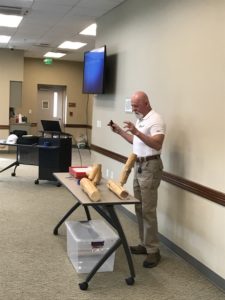
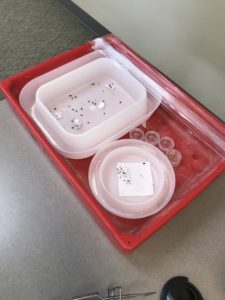
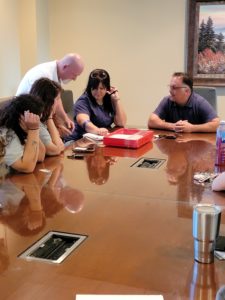
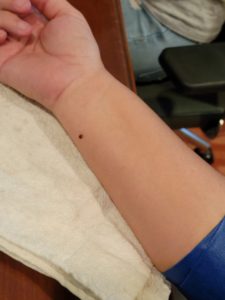
This seminar is for housekeepers, maids, inspectors, or anyone involved with hospitality groups. We have group seminars that other individuals can join. We also set up private seminars for individual companies.
This program teaches individuals not only how to recognize but also HOW and WHERE to look for Bed Bugs. Upon completing this seminar, you will know within 15-30 seconds of entering a bedroom if you have Bed Bugs or not!
We have a Myth Busters section on questions and answers.
We bring live Bed Bugs from nymphs to series 6 adults for you to view along with parts of wooden beds with evidence of their presence.
During this seminar we ask for a volunteer to be a host for feeding a live Bed Bug. They will receive first hand knowledge to questions such as can you feel them crawl on you? Can you feel them while they are feeding on you?
These seminars are approximately 2 1/2 hours long.
If you prefer to have a private seminar at your location, all you need is a meeting room and monitor with a HDMI cable hookup for a powerpoint presentation. If these are not readily available I can have accommodations available for you.
To schedule or participate in a seminar please call:
Gary Spears at 865-742-2323
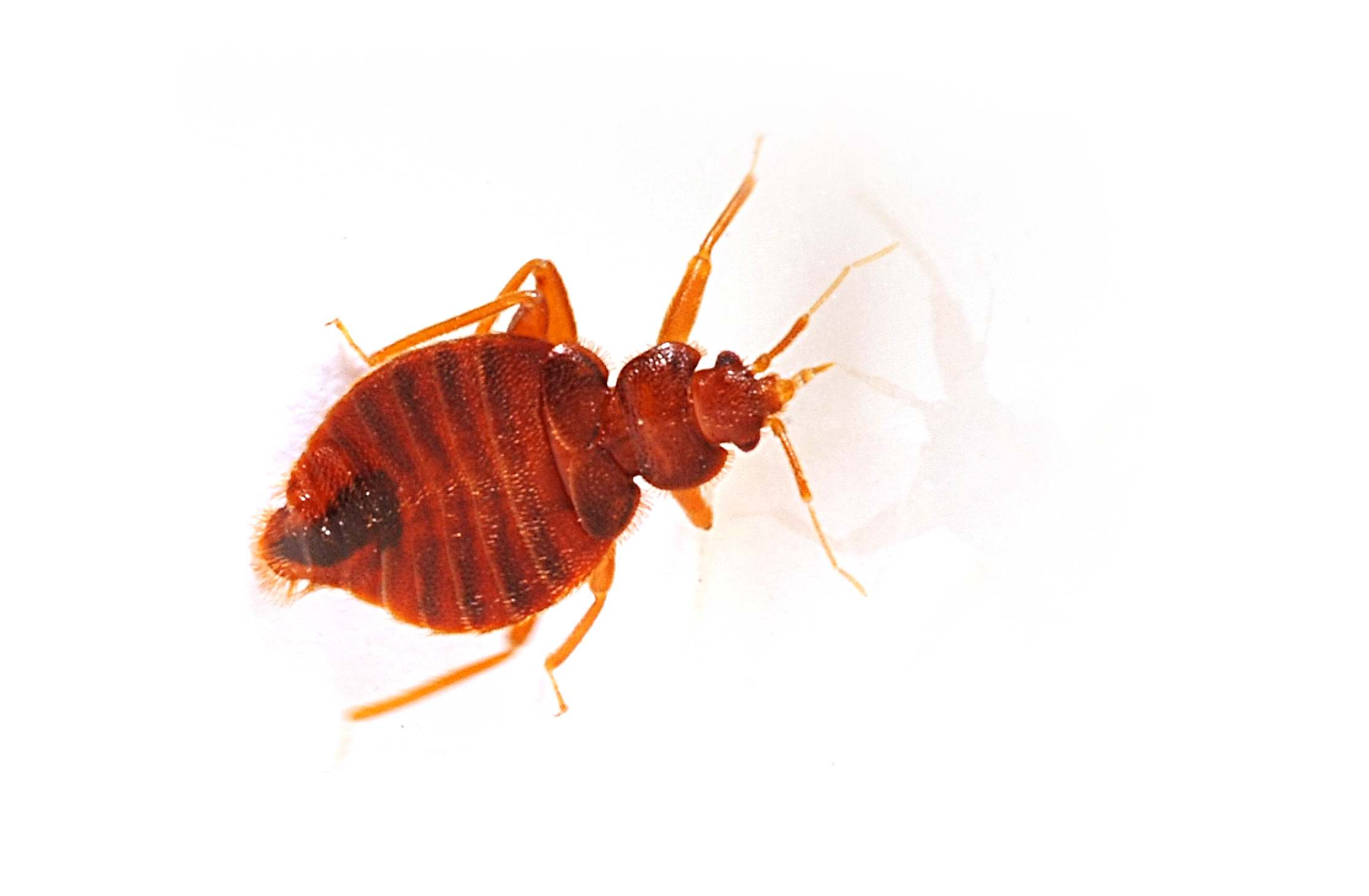
Do you have or suspect you have bed bugs? Contact us!
If you have or think you have bed bugs one of the worst things you can do is wait to get the problem taken care of! Not only will the bed bugs be searching for a host to feed off of (which could be you, your family, friends, or your customers), but they can also spread to other properties/homes causing a terrible situation for those involved. We pride ourselves on fast response times and unbeatable customer service so if you think you have or know you have bed bugs contact us so we can help!

